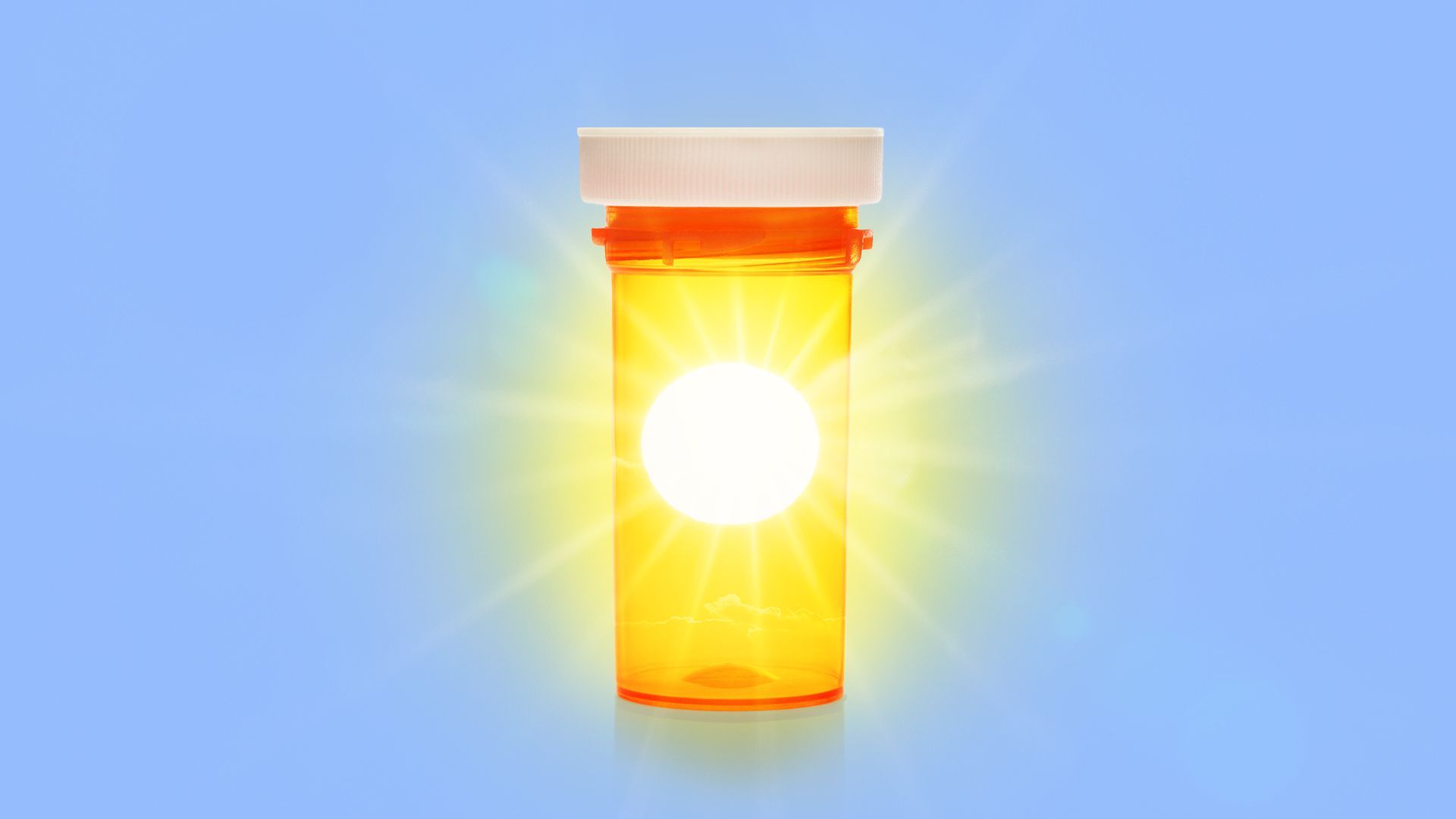Plus: A stunning stat | Tuesday, May 31, 2022
| | | | | | | Presented By Square | | | | Axios Finish Line | | By Mike Allen, Erica Pandey and Jim VandeHei ·May 31, 2022 | | May 31, 2022 | | Welcome back. We're at FinishLine@axios.com to field your feedback. - Smart Brevity™ count: 495 words ... 2 minutes.
| | | | | | 1 big thing: Soak up the rays |  | | | Illustration: Natalie Peeples/Axios | | | | Nearly half of us — regardless of age, race and home state — are deficient in the sun's vitamin. Why it matters: We need vitamin D for healthy bones and teeth and strong immune systems but simply fail to get enough from the sun and other sources. - What it means: 42% of us have less than 20 nanograms of "the sunshine vitamin" per milliliter of blood — the amount we need to thrive.
What's happening: 85% of kids who needed surgery for fractured or broken bones were vitamin D deficient, according to a recent University of Texas study. Several studies have observed low vitamin D levels in pneumonia and COVID patients. - Rates of deficiency are especially concerning among adults older than 70 — who need more vitamin D than younger people — and people of color — whose melanin in their darker skin makes it more difficult to get vitamin D from the sun.
Here's what you can do: - Get tested. The only way to find out if you're deficient is to get a blood test from your doctor. If you can get that test, do it. If not, consider looking for sources of vitamin D anyway because there's a good chance you need it.
- Catch rays. The fastest way to raise your vitamin D levels is to get it directly from the sun. But it's not practical to rely solely on the sun. You need 15 to 20 minutes of sunbathing without sunscreen per day to get enough vitamin D, and that's unrealistic for most people, Steven Clinton, a medical professor at Ohio State University, told the Washington Post.
- Eat right. Vitamin D naturally occurs in some foods — like fatty fish, egg yolks, cheese and mushrooms — UT's Health Science Center notes. And keep an eye out at the grocery store for foods that have been fortified with vitamin D, like milk, yogurt, orange juice and cereal.
- Use supplements. There are a slew of multivitamins and supplements that offer vitamin D. HealthLine has a detailed list. Doctors recommend consuming 800 to 1000 international units (IU) daily.
- But be smart. Too much sun can damage your eyes and your skin and cause cancer, and taking too much vitamin D every day can lead to calcium buildup in your blood.
The bottom line: Vitamin D props up key parts of our health, but deficiency is difficult to detect. As we head into the summer, spend more time outside — safely — to soak up this crucial ingredient for a long and healthy life. |     | | | | | | A message from Square | | Your guide to labor costs | | |  | | | | As a business owner, it's important to understand and manage your expenses properly. What you're missing: Labor costs are often the largest, or one of the largest, expenses that a business owner must manage. Learn how you can better manage labor costs. | | | | | | ☀️ Sunshine stolen |  | | | Illustration: Sarah Grillo/Axios | | | | Stunning stat: American parents to children between the ages of 8 and 12 said their kids spend three times as much time inside using computers or watching television as they do playing outside in a recent study. - That's hours of missed vitamin D exposure.
|     | | | | Thanks for reading. Invite friends to sign up. |  | It's called Smart Brevity®. Over 200 orgs use it — in a tool called Axios HQ — to drive productivity with clearer workplace communications. | | | | | | Axios thanks our partners for supporting our newsletters. If you're interested in advertising, learn more here.
Sponsorship has no influence on editorial content. Axios, 3100 Clarendon Blvd, Suite 1300, Arlington VA 22201 | | | You received this email because you signed up for newsletters from Axios.
Change your preferences or unsubscribe here. | | | Was this email forwarded to you?
Sign up now to get Axios in your inbox. | | | | Follow Axios on social media:    | | | | | |
Post a Comment
0Comments